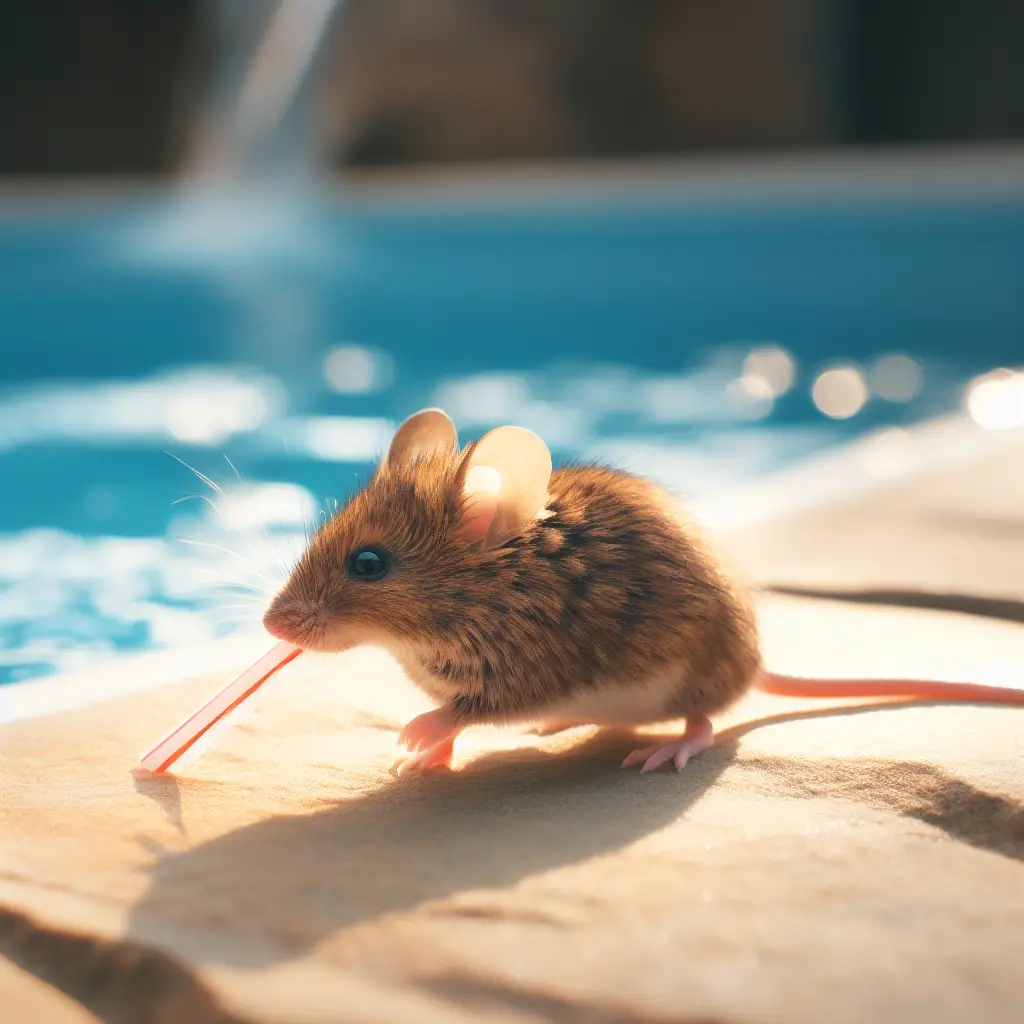You might think with a salt water pool that you’re safe from rodents like mice and rats falling in, presumably because you think they won’t want to drink the salt water, right?
Unfortunately, you’d be wrong.
Rats, mice, frogs, birds and other animals don’t know you have a salt water pool or regular chlorinated one. They just see a big body of water to drink or bathe in.
Rodents and other animals are attracted to water sources including salt water pools and may drink from it and fall in when scurrying around. Using a pool cover and making your backyard less inviting to rodents is the best way to prevent them from going near your pool.
Why do rodents keep falling into my salt water pool?
I’ve been sitting on my patio and suddenly see a small mouse fly out of the garden and run right into the pool. I’ve looked out the window on the top floor of our house at the pool and seen a small series of ripples, just enough for my eyes to recognize that’s it’s probably a small rodent swimming around desperately trying to survive after falling in. In each case, I was able to use the telescopic skimmer to rescue the animal.
Once I fished a small mouse out of the pool and after placing it gently on the patio with the skimmer, it turned around and ran right back in the water again.
Rats and mice have notoriously bad eyesight. And they tend to run around quickly (especially mice) to avoid cats and other predators. So it’s not surprising that they tend to run too quickly and fail to see a pool standing right in front of them whether it’s light or dark out.
Rats and mice are also nocturnal which means they tend to come out at night. This helps to explain why you often wake up and see a dead rodent floating on the top of the water. They were scurrying around at night, fell into the water, and weren’t able to escape.
How can you prevent rodents from falling into your salt water pool?
Using bait to kill rats and mice may be too cruel for your liking and you may not want chemicals around your home. Plus, many bait traps cause dehydration so once the rodent eats the bait, they may immediately look for water and guess what? They go directly to your pool rather than away from it.
Short of placing traps near your pool, the best thing you can do is use a pool cover. At least with a pool cover or solar blanket, there’s a chance that the rodent will land on the cover rather than falling into the water and may either be able to hop out or at least stay safe until you are able to fish it out with your skimmer.
With a pool cover, they may not even see the water in the first place and move on elsewhere.
You can also try to make your backyard and pool area less enticing to rodents. Mice and rats may have lousy eyesight but they have a very good sense of smell. So they notice food, food scraps, pet food, pet waste, birdseed, and moldly waste among other sources.
If you have a dirty, greasy barbeque, they can smell that too and will be attracted to it.
Rodents also like piles of wood, garbage and anything that they can hide and nest in.
Eliminating each of the above-mentioned items can help to reduce the chance they dive into your pool.
You can also leave an inflatable crocodile floating in the water as it can help to ward off rodents and even birds.
Do water features attract rats and mice?
Any source of water can attract a thirsty rodent so pool waterfalls and slides can certainly summon them to your backyard. Then again, so can a dripping tap, puddles, sprinklers and even your pet’s water bowl. So do be careful with each of these items and eliminate them when possible.
Even clogged eavestroughs and gutters can attract rodents so it’s important to not only think about your pool but the entire area of your home to try to make it less interesting to mice, rats and other animals.

What should I do with a dead mouse in my salt water pool?
If you find a small dead rodent that is small enough to remove, you can use your telescopic skimmer to remove it and safely dispose of it in the garbage preferably in a double bag to ward off maggots and other pests.
Make sure you sterilize or otherwise clean the skimmer once you have removed the dead animal.
If you own any type of pool, you will eventually deal with dead rodents as well as frogs, birds and other animals that fall in and can’t get out. It is something you will experience from time to time.
How dangerous are dead rodents in my salt water pool?
For a small rodent such as a mouse or rat, the chlorine in your pool should kill any bacteria and not pose a health threat to swimmers. This is why it’s always important to ensure that your free chlorine level (the chlorine available at that time to sanitize the water) is between 1 ppm – 3 ppm (parts per million)
Ensure that your water is balanced and that each component is in line at all times.
You can also superchlorinate to be safe before swimming again, if you’re concerned.
If you find a larger dead animal in your pool such as a raccoon, skunk, squirrel, bat or bird, your best bet is to contact your local health authority and pool company to get some advice as to how to proceed and to avoid swimming in the pool until then.
The CDC also gives guidelines on the subject of larger animals dying in your pool and how you should handle it.

